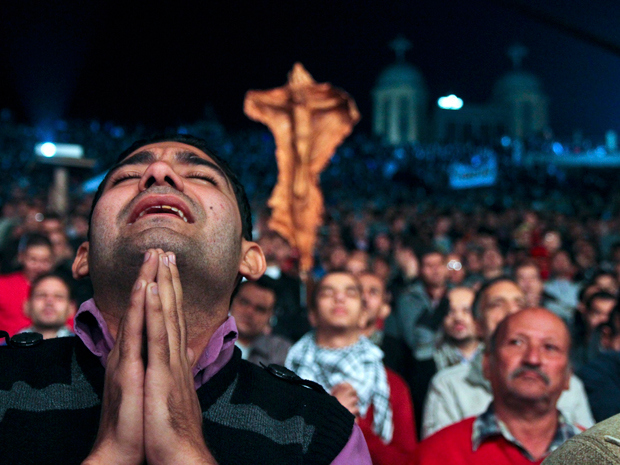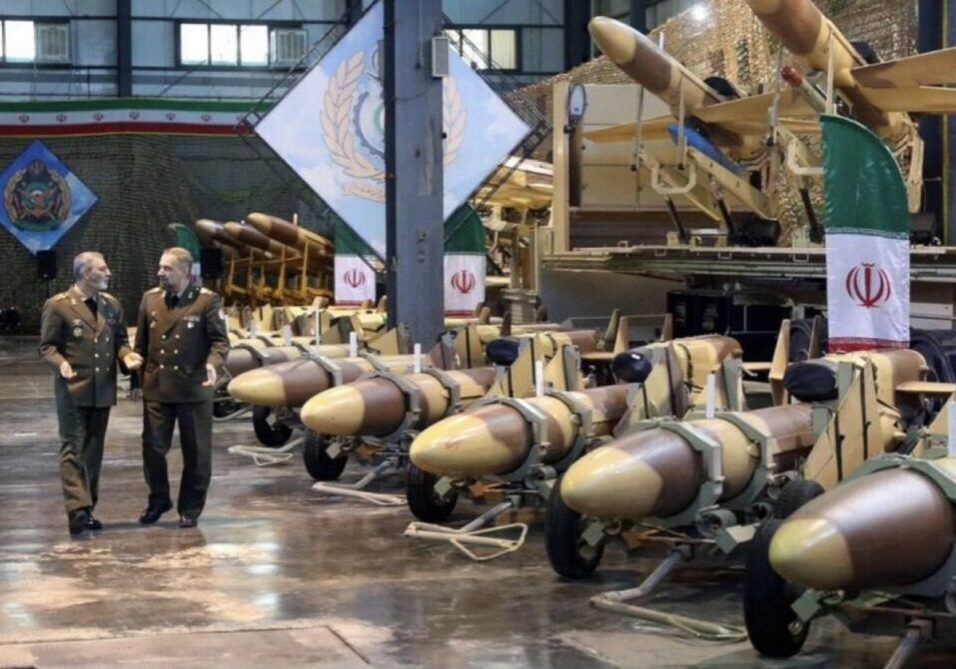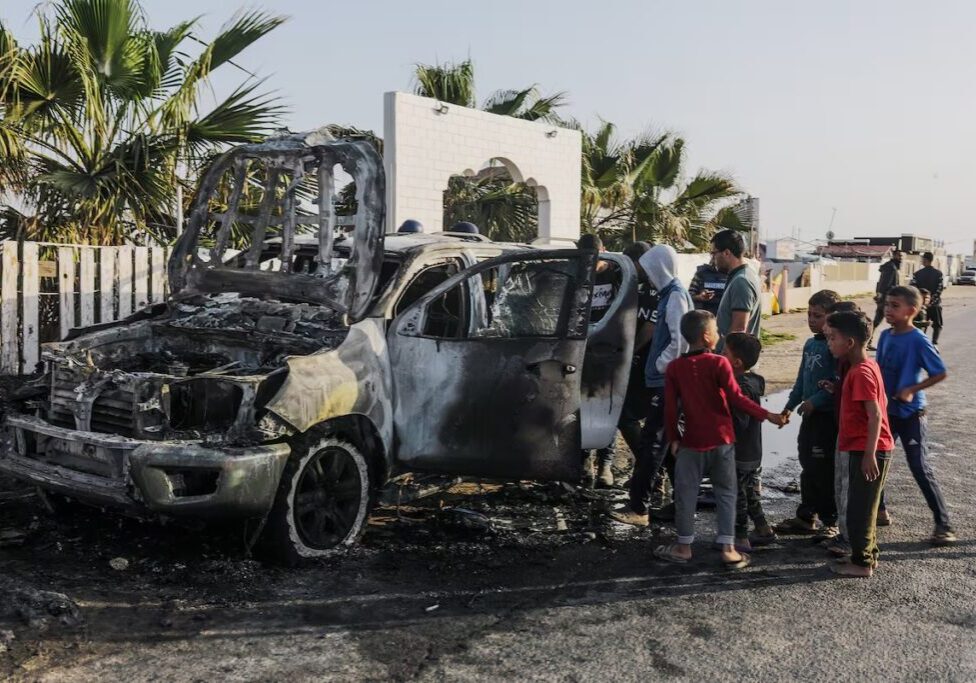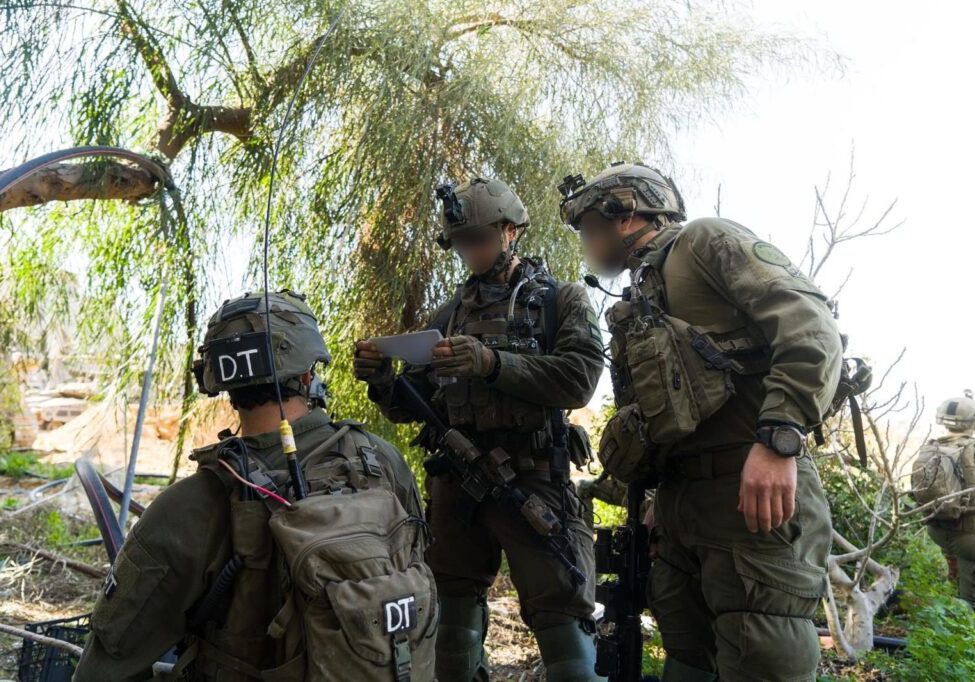Australia/Israel Review
Essay: End Times?
Jun 10, 2015 | Walter Russell Mead

The plight of the Middle East’s Christians
Walter Russell Mead
The Christian communities of Syria and Iraq have survived 2,000 years of tumult and war. In some of them, prayers are still said in Aramaic, the language that Jesus used in daily life. These communities now tremble on the brink of destruction.
The numbers are stark. Almost 1.5 million Christians lived in Iraq under Saddam Hussein. Between the US-led invasion that toppled his regime in 2003 and the rise of Islamic State, three-fourths of the country’s Christians are believed to have fled Iraq or died in sectarian conflict. The carnage continues. Of the 300,000 Christians remaining in 2014, some 125,000 have been driven from their homes within the past year.
Almost a third of Syrians were Christian as recently as the 1920s, but only about 10% of the country’s 22 million inhabitants at the onset of the current civil war were members of Christian communities. That long and slow relative decline has accelerated as hundreds of thousands of desperate Christians, along with millions of their Muslim fellow citizens, flee the fanaticism of Islamist rebels and the brutality of Bashar al-Assad’s regime.
Violent oppression is nothing new for the Christians of these countries. The Ottoman Empire’s well-known genocidal violence against the Armenians during World War I was accompanied by similarly brutal and widespread mass murders of Assyrian Christians. And in the 1930s, in the ethnic and nationalist turmoil following the fall of the Ottomans, tens of thousands of Iraqi Christians were murdered in riots and massacres.
Where will it end?
The process of murder and “religious cleansing” may well continue until, for all practical purposes, the Christians of these countries simply disappear. Other Christian populations in the Middle East have been almost entirely wiped out or displaced. In 1900, most of Constantinople’s residents were Christian; today, of Istanbul’s population of some 14.4 million people, fewer than 150,000 identify with any faith other than Islam.
The years ahead may bring a similar fate to other Christian communities, consumed by the fires of fanaticism. But the risk is not just regional: The loss of a meaningful Christian presence in the Middle East could further polarise relations between Christians and Muslims around the world – and bring us a step closer to the kind of “clash of civilisations” that no sensible person wishes to see.
The violence of 2015 has deep roots in more than a century of brutal religious and ethnic wars not just in the Middle East but across Central and Eastern Europe as well. For all their obvious differences, the Ottoman, Russian, German and Austro-Hungarian empires were alike in being multi-ethnic and multi-confessional states. The collapse of these empires after World War I left vast territories to be divided among competing groups.
The process was neither smooth nor, in most cases, fair. Bitter conflicts – between Serbs and Kosovars, Germans and Poles, Jews and Palestinians, Greeks and Turks, Turks and Armenians, Armenians and Azerbaijanis, to name just a few – led to repeated episodes of war and ethnic cleansing, leaving legacies of hatred and fear throughout the region.
Where the four pre-World War I empires once stood, there are now more than 40 states. The transformation satisfied the longing of many groups for national independence and opened the door to democracy in many countries, but for tens of millions of people, it led to unprecedented violence and displacement. Today’s strife in the region – with multi-confessional, multi-ethnic Syria and Iraq threatening to dissolve into smaller, more homogeneous units – is the latest act in a long, bloody tragedy.
During the many centuries of imperial rule, the peoples of the region became scattered and mixed. But the region was a salad bowl, not a melting pot; groups retained their distinctive customs and beliefs wherever they went, and different ones served different economic roles.
But the old arrangements could not withstand the rise of nationalism and calls for self-determination. When the Balkan peoples struggled to throw off Ottoman rule in the 19th and 20th centuries, they wanted ethnic nation states like the ones they saw in the West, such as Sweden, Denmark and France.
Wars of independence became wars of peoples and wars of religion. Turks massacred Christians, whom they suspected of sympathising with the rebels, and Christians massacred and drove out Turkish civilians and Muslims on the side of the empire. And of course, from time to time, everyone took a turn persecuting the Jews. From the war for Greek independence that began in 1821 up through the chaotic collapse of the Ottoman empire in 1923, such wars swept through the region, and atrocities became almost routine.
Wars of identity break out when order breaks down – which is what happened across the region as the Ottoman and Russian empires collapsed. More recently, we have seen the return of such conflicts in Yugoslavia after Tito’s death and in the Caucasus and now Ukraine following the fall of the Soviet Union. In Syria and Iraq, a series of colonial masters and locally grown despots maintained a brutal order from the 1920s through the last decade. But neither the colonisers nor the despots could provide permanent security.
The role of Islamist fanaticism among Sunnis and Shi’ites in the latest round of violence should not be minimised, but Christians are not now and never have been the only victims of these wars. From vicious massacres in the Balkan wars of independence to the destruction of the Circassians (a predominantly Muslim people of the Caucasus), the mass deaths of Crimean Tatars and the more recent slaughters in Bosnia and Chechnya, Muslim communities have often fallen victim as well. In the spreading sectarian conflict between Shi’ites and Sunnis, the murdered innocents and penniless refugees fleeing for their lives are usually Muslim.
Still, in the wars of identity raging across the post-Ottoman Middle East, Muslims have more often been the perpetrators and Christians the victims. That is certainly true today in Iraq and Syria, where Christians are for the most part unarmed and much of the killing is being done in the name of radical Islam.
Over the centuries, Middle Eastern Christians have developed many survival strategies. One is to stay invisible. Christians have often survived best in remote areas, and those in more densely populated areas often do their best to avoid antagonising their neighbours.
Another survival strategy for Christians has been to find foreign protectors. In the 19th century, the Christian powers in Europe and the US took an increasing interest in the situation of Christian and other minorities in the Ottoman lands.
This strategy had its successes, but it proved costly. Turks justified the Armenian genocide as a necessary measure against a pro-Russian Armenian rebellion in World War I. Assyrian Christians provided troops for the British against Arab and Kurdish rebellions against British authority in the 1920s; they paid a heavy price when the British withdrew and the retaliations began.
As Christians in the Middle East have learned at great cost, the Western powers and so-called “international community” are weak reeds. They have been (and still are) slow to intervene, and their interventions have usually been half-hearted, short-term and subject to the vagaries of great-power rivalries.
Yet another Christian survival strategy was to support the development of a secular Arab identity in which Christians and Muslims could meet as equal citizens – just as Catholics and Protestants can be German or American citizens. Many of the most influential Arab nationalists (including many radical Palestinians) were of Christian origin.
People such as Michel Aflaq and Antun Sa’adeh of Syria and George Habash of Palestine made significant contributions to Arab nationalist thought, and the era of secular Arab nationalism allowed many Christians to play more prominent roles in the region. Anti-Zionism also became one of the ways that the Christians of the Middle East could demonstrate their Arab bona fides.
Unfortunately for Christian hopes, secular Arab nationalism lost its allure. The titans of the nationalist era too often became ineffective despots presiding over failed states. As the intellectual pendulum of the Arab world has swung back toward Islamist ideas about politics, Christians have found themselves ever more marginalised.
For Christians, a final survival strategy was to cling to strong rulers. In Syria, Iraq and Egypt, they attached themselves to rulers such as Hafez al-Assad, Saddam and Hosni Mubarak (and now Abdel Fattah al-Sisi). Such alliances had their uses for both parties. Christians achieved a measure of protection and stability; they were repressed no worse than anybody else, and a handful achieved wealth and political power.
For the despots, Christian allies served many of the purposes that Jews once did for kings in the Middle Ages. They were seen as loyal because they had no other place to turn – and as useful both for their services and because you could blame them when things went wrong. They could also be counted on as intermediaries who could present the regime’s case to outside powers. It was not for nothing that Saddam Hussein named Tariq Aziz (a Chaldean Catholic) as his foreign minister.
The deal between Middle Eastern despots and their Christian communities also served to conceal other divisions. In Iraq and Syria, the nominally secular Baathist regimes of Saddam and Assad were, in fact, governments that allowed a religious minority (Sunnis in Iraq, Alawites in Syria) to dominate the country’s majority. However much Christians may have disliked the cruelty of these rulers, they themselves were minorities, and they often preferred minority dictators over the risks of potentially hostile, majority-run regimes.
The problem with this strategy is that dictators fall, and when they do, their supporters often face retaliation. The overthrow of Saddam and the raging challenge to Bashar al-Assad have left Iraqi and Syrian Christians without the protection they hoped for, exposing them to the vengeance of populations that blame them for supporting a hated oppressor.
Moreover, the continuing association in many Muslims’ minds between local Christians and the hated imperialists of the West makes local Christians attractive targets: You can always find one to kick if you can’t strike out directly at Israel or the US. “When America does a drone strike,” a 25-year-old Pakistani Christian student told Fox News, “they [Muslim mobs] come and blame us. They think we belong to America. It’s a simple mentality.”
The failure of traditional Christian survival strategies has occurred just as the regional order is beginning to collapse. Iran’s challenge to the balance of power has exacerbated sectarian tensions throughout the Middle East, sparking factional conflict and polarisation in Syria and Iraq. While the Obama Administration tries to withdraw from the region and tilt toward Iran, the kind of insecurity that has historically inflamed communal tensions in the Middle East – and led to genocidal violence – extends its reach every day.
Traditional strategies of accommodation will no longer serve. Christians face stark choices. They can “fort up,” creating defensible and well-armed enclaves that their enemies cannot conquer. They can flee, as millions have already done. Or they can wait to be massacred.
In the modern Middle East, the minorities that have survived, and in some cases thrived, have acquired a military capacity. The Jews, the Kurds, the Armenians, the Maronites and the Druse have not all created states, but they have all built redoubts. The Maronites (Lebanese Christians in communion with the Roman Catholic Church) and the Druse (a monotheistic religion distinct from both Christianity and Islam) both entrenched themselves in the mountains of Lebanon and built militias that have allowed them to survive recurring bouts of civil war.
Other communities have chosen the path of flight. Almost all the Jews of the Arab world now live in Israel. More Armenians and Circassians live outside their ancestral homelands than in them. Many Assyrian and Chaldean Christians already live in the West, and Copts and other Christians have been escaping in a steady flow.
The conscience of the West has been slow to wake to the peril of the dwindling minorities of the Middle East (including non-Christians such as the Yazidis, as well as the persecuted Baha’i of Iran and the Ahmadis of Pakistan), but Islamic State is changing that. In the wake of its atrocities, Pope Francis and, in the US, church leaders like New York’s Cardinal Timothy Dolan are speaking up.
This is a very good thing, but advocates for the Christians and other endangered Middle East minorities must think hard about the available options. We must choose from among three courses of action.
We can help the region’s minorities “fort up,” as the Israelis, Kurds and Maronites have done. We can help them to escape and work with friends and allies around the world to help them find new homes and start new lives. Or we can do what history suggests, alas, as our most probable course: We can wring our hands and weep piously as the ancient Christian communities in Syria and Iraq are murdered, raped and starved into oblivion, one by one.
Walter Russell Mead is a professor of foreign affairs and humanities at Bard College, a distinguished scholar in American strategy and statesmanship at the Hudson Institute and editor at large of the American Interest. © Wall Street Journal, reprinted by permission, all rights reserved.
Tags: Egypt






